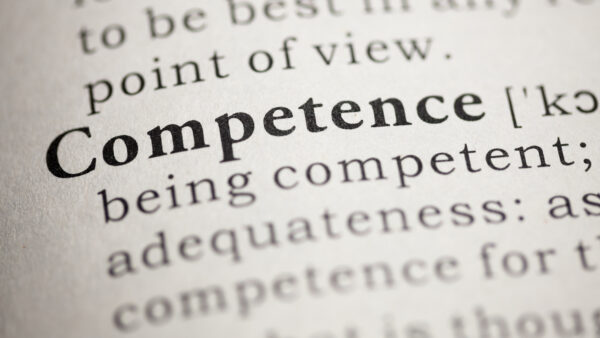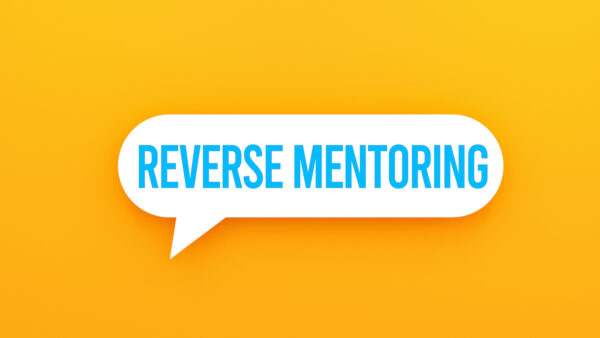A potential clash on a tube train led Jeff Whitfield to rethink his attitude to confrontation and conflict. He tells us how the lessons can be applied at work.
A few years ago I was attending an FA Cup Final with my wife, and we were both wearing our red Middlesbrough FC shirts. At a central London tube station we saw a packed Wembley bound tube train about to depart, so we leaped into the end carriage. As the doors closed behind us we noticed the carriage was packed with Chelsea supporters. Our two red shirts seemed to shine like a beacon among a sea of blue as every eye turned on us.
A tattooed and shaven headed man at the far end of the carriage began singing a Chelsea song that called for the death of the opposition fans – us. The whole carriage joined in. This journey was destined to be a long 45 minutes. There followed two more songs before the shaven headed leader began the chant of “Boro, Boro, give us a song”, a chant that is usually an invitation to a thousand red-shirted young adults, not an inappropriately dressed commercial director and his wife.
As there was no escape, and to their total surprise, my wife and I sang a Boro anthem, in dialect. Expecting the worst, we stared at the silent Chelsea fans. They, in turn, stared at their leader, who walked the length of the carriage in our direction. Adopting my stoic look to mask any panic, I found myself smiling. He smiled too as he placed his beefy, colourful arms around our shoulders and said to his friends, “Come on, then, round of applause, these two are all right.”

Could a chilled out approach help more managers achieve harmony?
It has been my experience that in the construction industry we often perceive threats where there are none. Despite my fears, were a bunch of supporters really going to harm a man and woman who could easily have been their parents? Probably not. Burdened with project pressures we can often foresee a conflict where, with appropriate action, there need be none.
I have given evidence in many construction arbitration hearings since 1992 and I have had hundreds of meetings with opposing parties. Every such meeting offers an opportunity for conflict, for the exacerbation of contention and for the adoption of unreasonably held opposing opinions. When faced with these tense situations the best outcome usually results from cooperation and friendliness, and not from sniping and criticising.
To resolve differences we need to identify, with precision, what they are, agree that these are the real differences between us and look for solutions, not necessarily compromise. The first step in finding any such solution is to recognise and occupy the common ground.
In that tube train we found common ground – a joint passion for football, affection for our home town team, the shared anticipation of the spectacle of the FA Cup Final. These were the binding ties that made us fellow travellers, rather than simple opponents. I learned a valuable lesson that day.
These are my rules for a happier existence for project managers who regularly face contentious situations:
- Examine the alleged dispute carefully. Ensure that reasonable positions are being adopted by both sides. Often disputes arise because one side is being wholly unreasonable.
- Ensure the alleged dispute is based on the facts before you, and not a surrogate for another dispute, for example a clash of personalities, or revenge for a former perceived slight.
- If the dispute is being passed up the line to you and the two warring parties are being unkind to one another, try to be a peacemaker. Set rules of conduct and standards of behaviour that will take some of the heat out of the situation.
- If the opposition wants to fight every point, don’t engage. Try to agree issues that are not really in dispute and then move to the easily resolved or minor issues first. When the less contentious disputes have been agreed, keep going, and the desire to resolve the more contentious issues will have renewed momentum.
- Do not dispute for the sake of it, only differ where it is absolutely necessary to do so.
- Develop friendly relations with your opposite number. Take time to be friendly, build rapport and share interests.
- Don’t deceive, lie, withhold information or mislead; trust may be lost forever.
- Be complimentary where it is possible, and it is always possible.
- Be honest all of the time.
- Don’t resort to sarcasm, inappropriate humour or belittle anyone.
- Share the workload, share the product of your work, and then share the success.
- Accept praise and compliments gracefully.
As a former construction director I have worked, dined and socialised with many former business competitors, opposing experts, adverse companies and lawyers. I have received recommendations and instructions from those who I previously worked against, and where possible I reciprocate. Generosity of spirit is a gift that you can freely give in the knowledge that it will be repaid many times over.
Everyone chooses their own path, but I choose this one: understanding, charitable cooperation and friendship, because I truly believe that it trumps the alternatives. A successful project is a wonderful destination and is all the more fulfilling if the journey is enjoyable.
Jeff Whitfield is a director and testifying quantum expert witness at Hill International based in Dubai. He is the author of Conflicts in Construction (Wiley Blackwell) and A Good Practice Guide to Loss and Expense (RIBA Books)








